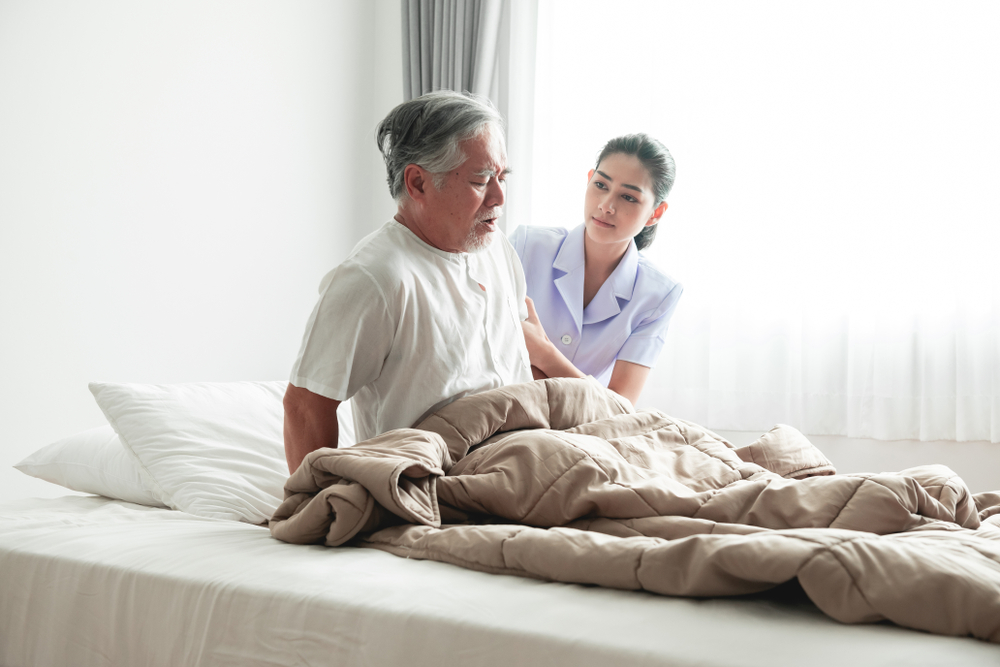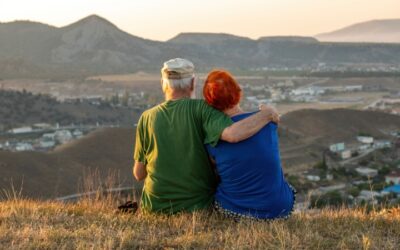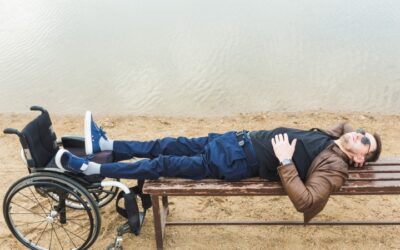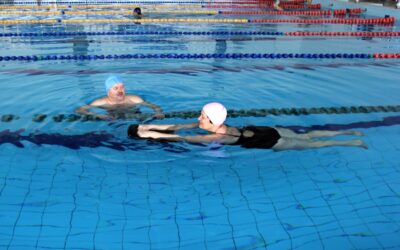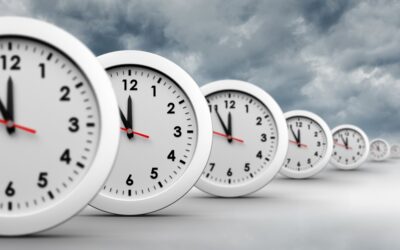Many have a hard time falling asleep or achieving restful sleep after experiencing a stroke. If you or someone you care about has experienced one, there are ways to get to sleep faster and sleep more soundly.
In this article, we’ll review the types of sleep disorders and issues that can arise after a stroke and enumerate some treatments that may help.
Sleep Disorders and Stroke Survivors
In 2010, the American Heart Association (AHA) developed and publicized risk factors for cardiovascular health and stroke called “Life’s Simple 7.” In their list, they included the consumption of tobacco, diet, blood pressure, physical activity, body weight, cholesterol, and blood sugar levels.
The list, however, failed to include sleep disorders like sleep apnea as well as irregular and excessive sleep patterns as part of routine tests for patients who experienced a stroke. Since many survivors experience problems with sleeping after their strokes, the AHA agrees that sleep should be added as a metric to existing cardiovascular tests. This addition can help identify patients who are at risk for heart problems while helping stroke survivors sleep better after the incident.
We dive into the most common sleep disorders in stroke patients and how they affect survivors.
Insomnia
While some stroke survivors experience excessive sleep after stroke, others have trouble falling asleep or maintaining an uninterrupted sleep cycle. Insomnia after a stroke can be caused by stress, depression, brain damage, or certain heart medications. Stroke survivors who experience disrupted sleep, insomnia, nightmares, waking up too early, or crippling cramps while sleeping should speak to their doctor if clonidine, beta-blockers, or diuretics have been prescribed for hypertension.
It’s important to further investigate this since a continued lack of restful sleep can increase the risk of another stroke. Getting enough sleep after a stroke is essential to support neurogenesis, the formation of new neurons that heals the brain after an episode.
Doctors can suggest alternative medicines as part of post-stroke insomnia treatment. Other options include the following:
- Sleeping in a quiet room with no light (use light-blocking curtains and keep your phone on do-not-disturb mode during sleep)
- Cognitive-behavioral therapy (CBT) may help to lessen the severity of insomnia
- Certain antidepressants such as Zolpidem and Mianserin may encourage better sleep in insomniacs with fewer negative effects on cognitive and motor skills
- Stroke patients should evaluate the risk of consuming hypnotics or psychoactive drugs such as benzodiazepines, which are known to increase the risk of falls and erratic behavior
Excessive Daytime Sleepiness
As important as sleep is for the recovery of stroke patients, many individuals experience excessive daytime sleepiness (EDS). Deep sleep after stroke is normal since the brain is struggling to recover from an episode. However, if you continue to experience EDS months after a stroke, it’s best to speak to your doctor about prescribing stimulant medication to balance EDS.
The following conditions can worsen EDS:
- Reverse Robin Hood Syndrome: This syndrome is a biological process that occurs in the brain when it tries to redirect blood from the affected parts of the brain to non-damaged parts.
- Sleep Apnea: This condition disrupts breathing patterns and can lead to choking, gasping, and loud snoring during sleep. It can also stop a person from breathing for several minutes, obstructing the body’s ability to receive adequate oxygen.
- Depression: For stroke patients, depression can have a debilitating effect on sleep, causing severe drowsiness and fatigue during the day.
Sleep-Wake Cycle Disorder
This disorder affects the 24-hour sleep-wake pattern of a person. For most, the goal is to get at least 8 hours of rest at night and staying awake for 16 hours during the day. The body controls this cycle through its circadian rhythm and its natural ability to maintain sleep homeostasis (when the drive to sleep increases).
Since we’ve developed the habit of remaining awake in the day and asleep at night, it turns into a routine that the body depends on. For stroke patients, the sleep cycle can significantly change. Individuals who have suffered an episode tend to sleep at odd hours and aren’t able to stay awake for long during the day.
How To Improve Sleep After a Stroke
After a stroke, there are ways to improve sleep. These strategies can be practiced simultaneously with a doctor’s prescribed medication and post-stroke therapy. Here are some methods you can try:
- If you suffer from sleep apnea, speak to your doctor about using a C-PAP (continuous positive airway pressure) machine. The machine blows air continuously through a mask, which is worn while you sleep. It is comfortable enough to wear all night and will help your body get adequate oxygen as you rest.
- For those who suffer from sleep-wake cycle syndrome, 30 minutes of bright light therapy daily can help realign your inner clock. Sit in a room with plenty of sunlight, facing the window if you can. Sip on water or tea and allow your body to get accustomed to this daily habit.
- If you have trouble sleeping, talk to your doctor about taking melatonin supplements. Your doctor can recommend whether or not they’re ideal for you based on your medical condition and history as well as the medication you’re taking.
Melatonin is a natural substance that the pineal gland in the brain releases to regulate sleep-wake cycles. Taking it as a supplement can help insomniacs and those who suffer from sleep-wake cycle syndrome.
- Engage in moderate exercise every day to improve cognitive function and mobility.
- If you live in a noisy neighborhood, invest in noise-canceling headphones or a white noise machine for uninterrupted sleep.
- Avoid looking at the TV or your phone an hour before bedtime. Instead, take a warm bath to help relax you.
- Avoid eating a heavy meal right before bedtime to avoid issues such as heartburn, acid reflux, and indigestion. You should ideally consume dinner 3 hours before sleeping.
- During warmer months, your room should be well-ventilated and cool enough to encourage sleep. For colder months, turn on the heater and wear thicker nightwear for better sleep.
- Avoid eating in bed and watching TV. It’s best to have a space dedicated for sleep.
- Drink chamomile or passionflower tea (they contain apigenin, an antioxidant that can help induce sleep) 30 minutes before bedtime.
Conclusion
A stroke can leave you anxious, distraught, and unable to get a good night’s sleep. Sleep patterns can change drastically but there are ways to counteract restless nights with the right medication, therapy, and lifestyle changes.
By first understanding which sleep disorder is prevalent, a doctor can prescribe the best course of action. The above strategies will eventually help improve sleep after a stroke in combination with professional guidance.
Other articles you might like:
Suboptimal Coping Strategies…
Control is an alluring coping strategy in challenging times. I credit most of my upper body strength to Chico. My workout includes rows, bicep curls, arm rotation, trunk rotation and occasional back extension. I do this workout about 3-4 times a day. It is brutal....
Here for a season….
Fear and faith can’t co-exist. Why are we not where we want to be? Why are you not where you want to be? Have you ever set out to accomplish a goal and gave up long before the finish line? Or maybe you accomplished a goal, only to return to your baseline. If so, you...
Love, generativity, and wisdom after a health crisis
"He gives strength to the weary and increases the power of the weak. Even youths grow tired and weary, and young men stumble and fall; but those who hope in the LORD will renew their strength. They will soar on wings like eagles; they will run and not grow weary, they...
Trees, chainsaws, and pain
“I have told you these things, so that in me you may have peace. In this world you will have trouble. But take heart! I have overcome the world.” – Jesus John 16:33 NIV “Pain is temporary”. Or so they say. I would like to poke a thousand holes into this idea. Full...
You aren’t as lazy as you think…
“You can’t teach an old dog new tricks”. My 15-year-old car recently had to be admitted to the car hospital to infuse anything possible into its worn body as somewhat of a “Hail Mary” to extend its life. After getting her admitted I am not going to lie when I say I...
The Quality of Life Jackpot
“Quality of life (QOL)” is one’s perceived “position” in life and is a meaningful metric to “manipulate” in the pursuit of happiness. Some “work” to manipulate this by building relationships, wealth, or a family. All of which will undoubtedly have the potential to...
Post Traumatic Growth
"All life demands struggle. Those who have everything given to them become lazy, selfish, and insensitive to the real values of life. The very striving and hard work that we so constantly try to avoid is the major building block in the person we are today." Pope Paul...
Timelessness is a real thing
"Patience is not passive resignation, nor is it failing to act because of our fears. Patience means active waiting and enduring. It means staying with something and doing all that we can – working, hoping, and exercising faith; bearing hardship with fortitude, even...
Productivity or……profit
“The plans of the diligent lead to profit as surely as haste leads to poverty.” Proverbs 21:5 I can’t count on both hands the number of times someone asks me for “a number”. “Just tell me how many times a day I need to do this exercise, and I will do it.” The question...
Confinement….And Freedom
“Authentic freedom is actually the freedom of knowing who you are, why you are here, your purpose in life and where you are going when you leave here.” – Wayne Dyer Confinement. A word (in it’s various forms) used to describe someone with a physical limitation. “She...

